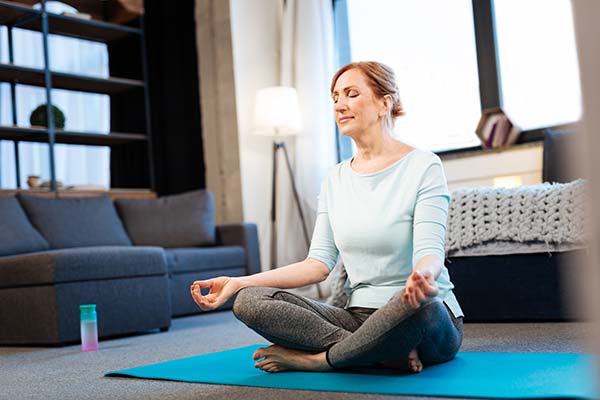While headlines have focussed on shops reopening and children returning to classrooms – there are still 2.2 million people in the UK who are shielding.
At the start of the coronavirus outbreak in the UK, people who were classed as clinically extremely vulnerable due to underlying health conditions were urged to shield at home away from other people.
Three months on, a poll by the Office for National Statistics has now found that 35 per cent of those shielding said their mental health had got worse during the coronavirus pandemic.
The proportion was even higher for people aged under 60 who are shielding – nearly half of them reported worsening mental health.
Government guidance has been recently updated. But for many people who are shielding, there’s still a lot of uncertainty about when they will be able to enjoy the day to day activities that the rest of the population are slowly being able to access again.
Our member Kathryn Kinmond says shielding has struck at the heart of people’s identities.
“People who are shielding have all been lumped together under one term. The reasons people are shielding can be very diverse, the conditions they have can be varied. For some people the underlying health conditions might not have been a major part of their life or identity. But now they have been identified as part of this shielding group. There are family members too, who are shielding as well to help their loved ones.”
Kathryn adds: “It has created an ‘other’, a label for people, and separated this group from the rest of society.”
She’s described how she works with clients who are experiencing these things – and what may help the mental health and wellbeing of people who are shielding.
Rediscover your own identity
Kathryn says that her work as a therapist helps people rediscover their own identity. This is really important for people who are shielding.
“We have to work to reframe their identity,” she says. “This is thinking about who they are, what’s going on, and that they’re not just a cancer diagnosis, or a person with COPD. They are much more than that, they have their own identity.”
Take back control
Feeling of uncertainty and lack of control have been very prevalent during the coronavirus pandemic and affect people’s mental health, especially so for many people who are shielding, says Kathryn.
Talking about her work with clients, she says: “We work together so they can perceive taking control back. It’s often like getting them to visually steer a ship through the storm. We look at what they can control.”
Kathryn says she helps people focus on what they can control during the day – for instance, what time they get up in the morning.
These small steps all help to take control.
Find things that give you joy in your life
Kathryn says she works with people to help them find things that give them joy in their life.
“Talking to people can help them see what there is to take joy in. Sometimes these are even tiny things – but they can have a big impact.
“Growing flowers is a good example. Tending to the flowers, seeing them grow, even if they’re a few seeds in a window box. It’s something people can control and enjoy.
“Painting, going for a walk, these things can help. Doing something creative is often good.”
Live in the moment
Kathryn recommends focussing on the present and not thinking about long-term planning.
“Live in the moment, think of tiny achievable goals. Again, these can be very small things that give you enjoyment and you can control.”
She says that grounding techniques can help you to focus on the present moment and filter out thoughts and worries that are causing you problems.
These include breathing exercises.
“I describe it as breathing in strength, breathing out the rubbish,” she says.
Talk to a qualified professional
“I think all of this highlights the importance of talking to a qualified, well-trained professional counsellor,” says Kathryn. “Being client-led means a counsellor will help you find out what works for you as an individual, they’ll not just be following models and reciting them.
“They will realise what you need and help you realise that and find your own identity again and take back control.”
Find a counsellor or psychotherapist who can help you using our Therapist Directory

Coronavirus: Advice for the public
Advice on seeing a therapist during the pandemic, plus tips, advice and coping strategies from our members to help you through these uncertain times

Coronavirus: Adjusting to coping with increased risk in our lives
Our member Jennie Cummings-Knight explains what can help our mental health and wellbeing when we're anxious about catching coronavirus

Coronavirus: How to look after your self-care in these uncertain times
Our member Eve Menezes Cunningham has self-care tips for mind, body, heart and soul
